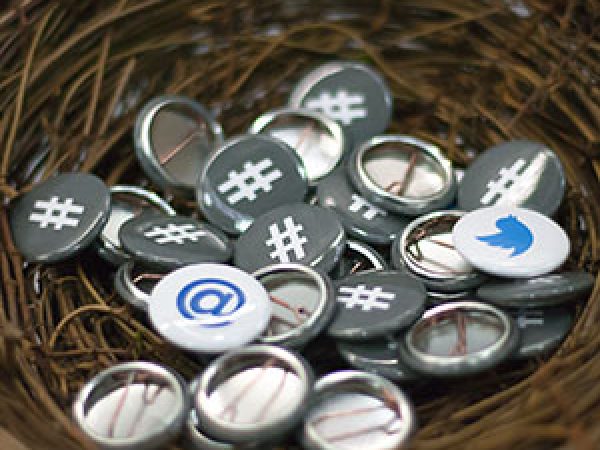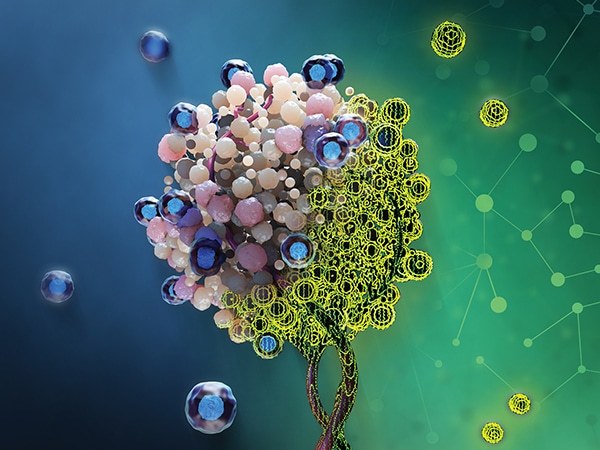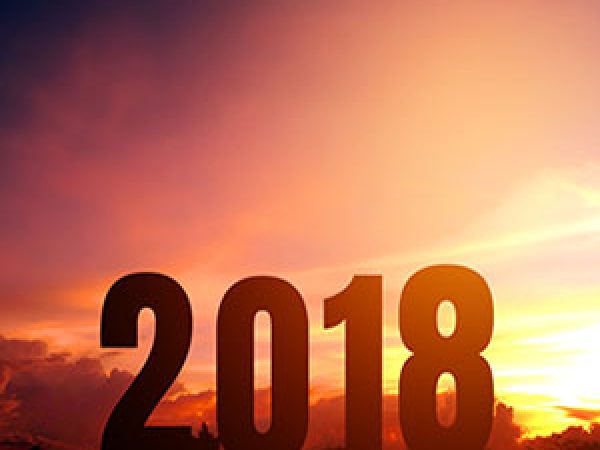AACR Cancer Health Disparities Conference Kicks Off With Diverse Speakers
Renowned prostate cancer researcher Folakemi T. Odedina, PhD, took the stage at the AACR Conference on the Science of Cancer Health Disparities in Racial/Ethnic Minorities and the Medically Underserved to deliver an award lecture in recognition of her three decades of work aimed at ending disparities in prostate cancer and diversifying clinical trial populations.
Odedina, the enterprise deputy director for community outreach and engagement at the Mayo Clinic Comprehensive Cancer Center, was being recognized with the 2023 AACR Distinguished Lectureship on the Science of Cancer Health Disparities. She received the award in recognition of her work in implementing community-based behavioral interventions to improve the health of minority populations; her dedication to promoting clinical trial participation among underserved and underrepresented populations; and her leadership in training the next generation of health equity scientists.
Among many innovative contributions to disparities research, Odedina founded the Prostate Cancer Transatlantic Consortium to explore genetic components of prostate cancer in 2005. In recent years, her lab established the Mayo Clinic Community Research Registry, a database of patients from underrepresented groups who have agreed to be contacted for clinical trials and other research.
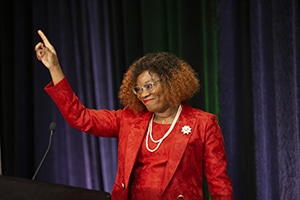
Initiatives like these have brought about a deeper understanding of forces that drive cancer disparities. But in order to put that understanding into practice, researchers need deep, authentic relationships with patients from underserved communities, Odedina said, noting, “The community must be at the table, with equal power.”
Odedina then introduced her research partner: a military veteran and cancer survivor named AJ Merriweather. Co-founder and president of the Black Male Prostate Cancer Coalition of Florida, Merriweather has lent Odedina such valuable perspective and worked so tirelessly with her that he has earned status as principal investigator on multiple studies. He’s also created vital links to his local community, through his prostate cancer group and local American Legion post.
“Mr. Merriweather and I are equals,” she said. “I’m a scientific PI, and he is a community PI. His contribution to the science is on equal footing with mine.”
With that, she turned the microphone over to Merriweather, who encouraged researchers to spend time in the communities they aim to serve, rather than visiting a neighborhood to collect data or deliver a program and then never returning.
“Talk to the person as if they were family. Don’t talk down,” Merriweather said. “If you get the data and they don’t see you anymore, you’ll go back some day for more data and they won’t want to talk to you.”
Odedina ended her award lecture by singing along to a song she wrote about educating oneself about prostate cancer. As an African beat played through the lecture hall, she invited meeting attendees to get up and dance.
Discovering disparities through a misdiagnosis
In November 2013, Shigeo Tsuruoka, age 71, started having black stools. He sought care at a local emergency room, and was discharged with a diagnosis of diverticulosis. His daughter, Aki Smith, was so relieved that it wasn’t cancer that she planned a joyous Thanksgiving celebration.
Before long, the family realized they had celebrated too soon. Tsuruoka’s initial diagnosis was incorrect; in fact, he had stage 3B stomach cancer. Physicians estimated he had six months to live.
Stomach cancer is rare in the United States, but much more common in Asian nations, due in part to high rates of infection from Helicobacter pylori. As an immigrant from Japan, Tsuruoka was at increased risk of stomach cancer.
As he began navigating the medical system, Smith found that her father’s Japanese ethnicity was not the only factor that left him open to disparities in cancer diagnosis and treatment. She believes his initial misdiagnosis was influenced by his limited proficiency in English, and the fact that he sought care at a community hospital rather than a comprehensive cancer center.
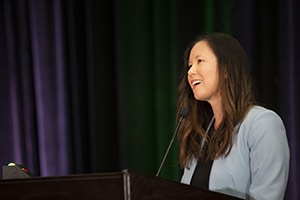
Smith said that once her father received his cancer diagnosis, the medical team at his local hospital disagreed about his treatment. She convinced him to seek a second opinion at the University of California, Los Angeles.
“There, we received clear direction on a plan. They thought there was a chance my dad could be cured,” she said. “They also found that he had an actionable biomarker—which was forward-thinking at the time.” Tsuruoka underwent surgery to remove his stomach, followed by chemotherapy, radiation, and targeted therapy. Today, he is in remission.
Motivated by her experience helping her father navigate the health care system, in 2016, Smith founded Hope for Stomach Cancer, a nonprofit aimed at promoting prevention and early detection of stomach cancer. The organization also provides resources on treatment, survivorship, and caregiving.
Smith hopes that such resources can help narrow or prevent the disparities that made her father especially vulnerable in the early months of his illness. “We aim to create the navigational tools we wished we had,” she said.
The family previously shared their story in Cancer Today, a magazine published by the American Association for Cancer Research.
A word from the White House
As the Biden administration’s Cancer Moonshot seeks to reduce cancer death rates by 50% over the next 25 years, it’s imperative that all Americans benefit from progress, said Danielle Carnival, PhD, deputy assistant to the President for the Cancer Moonshot and deputy director for health outcomes in the White House Office of Science and Technology Policy.
In September, the White House announced multiple new initiatives to further the program’s goals, many of which are designed to narrow disparities. First, the Advanced Research Projects Agency for Health (ARPA-H) will award an additional $240 million above previously set spending to researchers studying cancer-related projects. ARPA-H is also launching ARPANET-H, a nationwide health innovation network that will encompass all 50 states and the District of Columbia.
“This network will have a hub-and-spoke model that will build a better net, allowing us to connect local organizations to ARPA-H’s resources,” Carnival said. “This new network will enable historically underserved populations to actively participate in clinical trials, improve equity, and accelerate progress.”
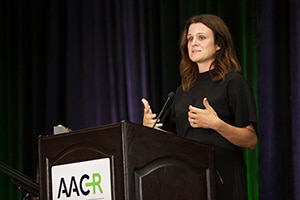
Carnival acknowledged that many disparities in cancer outcomes stem from cultural bias and mistrust. To ensure that the cutting-edge research presented at the Cancer Health Disparities meeting and supported by the Moonshot program reaches all Americans, building trust is critically important, she said.
“There has been tremendous progress against cancer. We’ve turned some cancers into curable diseases. We’ve turned others into livable chronic diseases. Continued results will help build that trust,” she said.
This conference, the 16th AACR conference on this vitally important topic, is a pivotal part of the AACR’s efforts to end cancer health disparities. More than 700 researchers and patient advocates from all areas of disparities research participated, whether in-person or online. This year, the meeting featured more than 450 abstracts presented as posters or short talks, as well as a robust patient advocacy program. Keep reading Cancer Research Catalyst for more coverage of this exciting meeting.

